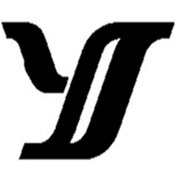Best Antitrust Litigation Lawyers in Seoul
Share your needs with us, get contacted by law firms.
Free. Takes 2 min.
List of the best lawyers in Seoul, South Korea
About Antitrust Litigation Law in Seoul, South Korea
Antitrust litigation in Seoul, South Korea, involves legal disputes related to competition law, mainly focusing on practices that restrict market competition or harm consumers and other businesses. South Korea's antitrust laws are designed to prevent monopolistic behavior, abusive market practices, and unfair business conduct. These laws promote fair competition, vibrant markets, and protect consumers from predatory strategies. The main legislative framework is outlined in the Monopoly Regulation and Fair Trade Act (MRFTA), and the Korea Fair Trade Commission (KFTC) serves as the primary regulatory authority overseeing enforcement and investigations.
Why You May Need a Lawyer
Individuals and businesses may need an antitrust litigation lawyer in Seoul for several reasons. Common situations include facing investigation or enforcement actions by the KFTC, being accused of collusion or price-fixing with competitors, experiencing abuse of market dominance by a rival, or seeking damages after being harmed by another company's anticompetitive practices. Navigating antitrust law can be complex, with serious financial penalties and reputational risks at stake. Legal representation is often crucial in defending your rights, negotiating settlements, or pursuing lawful remedies in court.
Local Laws Overview
South Korea's principal antitrust law, the Monopoly Regulation and Fair Trade Act (MRFTA), prohibits unfair trade practices such as collusion, cartel formation, market dominance abuse, and unreasonable restraints of trade. The KFTC monitors compliance and can impose administrative fines, corrective orders, and even file criminal referrals. Civil lawsuits are also possible, allowing affected parties to seek compensation for damages incurred due to anticompetitive conduct. Specialized procedures apply for investigations, hearings, and appeals. Recently, amendments have increased whistleblower protections and implemented stricter penalties to enhance regulatory efficiency.
Frequently Asked Questions
What is antitrust litigation?
Antitrust litigation refers to legal proceedings involving allegations of anticompetitive business practices, such as price-fixing, bid rigging, abuse of market dominance, or unfair mergers and acquisitions.
Who enforces antitrust laws in South Korea?
The Korea Fair Trade Commission (KFTC) is responsible for investigating and enforcing antitrust laws, with support from the courts when legal disputes move to litigation.
What kind of business conduct is considered illegal under South Korean antitrust law?
Illegal conduct includes collusion between competitors, abuse of market position, unfair trade practices like exclusive dealings or tying arrangements, and certain types of mergers or acquisitions that restrict competition.
Can individuals or businesses sue for damages in antitrust cases?
Yes, businesses or individuals harmed by anticompetitive practices can file civil lawsuits to seek compensation for damages suffered due to violations of antitrust laws.
What penalties can the KFTC impose for antitrust violations?
The KFTC can issue corrective orders, impose administrative fines, and, in severe cases, refer matters for criminal prosecution. The severity of penalties depends on the nature and impact of the violation.
How does the investigation process work?
The KFTC can initiate investigations based on complaints, whistleblower reports, or its own monitoring. It gathers evidence, conducts hearings, and issues decisions, which can be appealed in court.
Are leniency programs available for participants in illegal cartels?
Yes, South Korea operates a leniency program allowing cartel participants to voluntarily report activities to the KFTC in exchange for reduced penalties or immunity, provided they cooperate fully.
How long do antitrust cases typically take in Seoul?
The duration varies by complexity, but KFTC investigations can last several months to a few years. Subsequent civil or criminal court proceedings may extend the timeline further.
Can foreign companies be targeted by South Korean antitrust law?
Yes, the MRFTA applies to both domestic and foreign companies if their business conduct affects the South Korean market or its consumers.
What should I do if I receive a notice from the KFTC?
It is advised to seek immediate legal counsel. Responding deadlines are strict, and experienced antitrust lawyers can help prepare your defense, assemble relevant evidence, and communicate with authorities.
Additional Resources
- Korea Fair Trade Commission (KFTC): The main authority regulating and enforcing antitrust laws. - Ministry of Justice: Provides information on legal procedures and statutory rights. - Korean Bar Association: Offers directories for finding qualified antitrust and competition law attorneys. - Seoul Central District Court: Handles many antitrust litigation cases at the trial stage. - Korea Chamber of Commerce and Industry: Supports businesses with regulatory compliance and legal updates.
Next Steps
If you are facing antitrust litigation, or if you believe your business has been harmed by anticompetitive practices in Seoul, it is important to act promptly. Collect any relevant documents and communications, avoid destroying potential evidence, and contact an experienced antitrust lawyer as soon as possible. Legal professionals can help you understand your rights, assess your situation, and guide you through regulatory processes or court proceedings. Consulting with a lawyer early can significantly improve your chances of a favorable outcome.
Lawzana helps you find the best lawyers and law firms in Seoul through a curated and pre-screened list of qualified legal professionals. Our platform offers rankings and detailed profiles of attorneys and law firms, allowing you to compare based on practice areas, including Antitrust Litigation, experience, and client feedback.
Each profile includes a description of the firm's areas of practice, client reviews, team members and partners, year of establishment, spoken languages, office locations, contact information, social media presence, and any published articles or resources. Most firms on our platform speak English and are experienced in both local and international legal matters.
Get a quote from top-rated law firms in Seoul, South Korea — quickly, securely, and without unnecessary hassle.
Disclaimer:
The information provided on this page is for general informational purposes only and does not constitute legal advice. While we strive to ensure the accuracy and relevance of the content, legal information may change over time, and interpretations of the law can vary. You should always consult with a qualified legal professional for advice specific to your situation.
We disclaim all liability for actions taken or not taken based on the content of this page. If you believe any information is incorrect or outdated, please contact us, and we will review and update it where appropriate.














